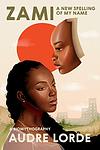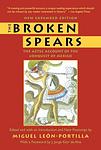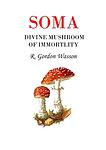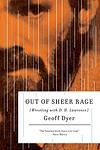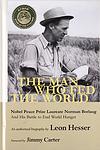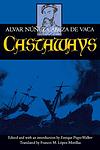The Greatest "Nonfiction, Mexico" Books of All Time
Click to learn how this list is calculated.
This list represents a comprehensive and trusted collection of the greatest books. Developed through a specialized algorithm, it brings together 300 'best of' book lists to form a definitive guide to the world's most acclaimed books. For those interested in how these books are chosen, additional details can be found on the rankings page.
Genres
The "Mexico" category for books would encompass literature that explores the history, culture, and society of Mexico. This could include works of fiction, non-fiction, and memoirs that delve into the country's rich traditions, political struggles, and diverse communities. From the ancient civilizations of the Aztecs and Mayans to the modern-day challenges facing Mexico, this category would offer readers a glimpse into the complexities and beauty of this vibrant country.
Countries
Date Range
Reading Statistics
Click the button below to see how many of these books you've read!
Download
If you're interested in downloading this list as a CSV file for use in a spreadsheet application, you can easily do so by clicking the button below. Please note that to ensure a manageable file size and faster download, the CSV will include details for only the first 500 books.
Download-
1. The Labyrinth of Solitude by Octavio Paz
This book is a profound and vivid exploration of Mexico's character, culture, and identity. The author delves into Mexico's history, politics, and psyche, examining the country's deep solitude and its impact on the national character. The book provides a comprehensive analysis of Mexican society, its myths, symbols, and rituals, offering a deep understanding of the Mexican people's unique way of perceiving the world. It also discusses the influence of the United States on Mexico and the complex relationship between the two countries.
-
2. Zami: A New Spelling of My Name by Audre Lorde
This book is a biomythography, blending history, biography, and myth, of a young, black, lesbian woman growing up in 1950s Harlem. The narrative explores her early life, including her relationship with her immigrant parents, her sexual awakening, and her struggle to define her identity in a time of intense racial and homophobic prejudice. The protagonist's journey is marked by a series of women who shape her consciousness and her understanding of herself, leading her towards activism and writing.
-
3. Junky by William S. Burroughs
This novel is a semi-autobiographical account of the author's life as a drug addict in the 1950s. The protagonist, living in New York City, becomes addicted to heroin and resorts to petty crime to support his habit. As he navigates the seedy underworld of drug addiction, he experiences the highs and lows of substance abuse, the desperate scramble for the next fix, and the constant threat of arrest. The book offers a stark, brutally honest portrayal of addiction and its effects on the human psyche.
-
4. The True History of the Conquest of New Spain by Bernal Díaz del Castillo
This book provides a first-hand account of the conquest of Mexico by the Spanish during the 16th century. It offers a detailed narrative of the events, battles, and interactions with native tribes, including the Aztecs. The author, a soldier in the Spanish army, provides a unique perspective on Hernán Cortés and his tactics, the politics of the time, and the cultural and religious practices of the indigenous people. The book also highlights the hardships, challenges, and ethical dilemmas faced by the conquistadors.
-
5. My Life by Leon Trotsky
This autobiography provides a detailed account of the life of a prominent Russian revolutionary and Marxist theorist. The book traces his early life, education, and political development, his role in the Russian Revolution and Civil War, his leadership of the Red Army, and his expulsion from the Communist Party and subsequent exile. It offers a unique perspective on key events in 20th-century history and an insight into the author's complex personality and intellectual development.
-
6. Frida: A Biography Of Frida Kahlo by Hayden Herrera
This biography delves into the tumultuous and vibrant life of a renowned Mexican painter known for her captivating self-portraits and works inspired by nature and artifacts of her country. It explores her complex relationship with her muralist husband, her struggles with chronic pain and health issues stemming from a tragic accident, and her passionate political activism. The book paints a vivid picture of her artistic triumphs and personal tribulations, offering an intimate look at her unique spirit and the cultural and political influences that shaped both her life and her art.
-
7. The Broken Spears by Miguel Leon-Portilla
"The Broken Spears" presents a poignant account of the Spanish conquest of the Aztec Empire from the perspective of the indigenous people. Through a compilation of Nahuatl texts, the book offers a narrative that contrasts sharply with the traditional European-centered histories. It highlights the devastating effects of Spanish conquest on the Aztec civilization, including the significant cultural and human losses suffered due to violence and disease. The work provides a voice to the Aztec people, showcasing their courage, complexities of their society, and the tragic impact of colonialism.
-
8. Enrique's Journey by Sonia Nazario
"Enrique's Journey" is a poignant narrative about a young Honduran boy who embarks on a perilous journey through Central America and Mexico to reach his mother in the United States. The story, based on a Pulitzer Prize-winning newspaper series, explores the harsh realities faced by immigrants, the devastating impact of family separations, and the unyielding determination of a child in search of his mother. It offers a deeply personal and eye-opening perspective on the challenges and perils faced by undocumented immigrants.
-
9. The Teachings Of Don Juan by Carlos Castaneda
The book is a captivating narrative that explores the author's experiences as an anthropology student under the tutelage of a Yaqui Indian sorcerer. Through a series of extraordinary encounters and the use of powerful psychotropic plants, the protagonist is guided on a spiritual journey to discover an alternative perception of reality. The work delves into the complexities of shamanism and the indigenous knowledge of the Sonoran Desert, challenging conventional understandings of consciousness and reality, and offering insights into a mystical tradition deeply rooted in Native American culture.
-
10. Soma by Gordon Wasson
"Soma" explores the intriguing hypothesis that the mysterious ritual drink called 'soma,' referenced in ancient Indian Vedic texts, was derived from a psychoactive mushroom. The book delves into linguistic, cultural, and ethnobotanical studies to support this theory, suggesting that the Amanita muscaria mushroom is the most likely candidate for the original soma. Through a detailed examination of the Rigveda, the author argues that soma played a central role in early Indo-Iranian religions, influencing spiritual practices and experiences. The work combines historical analysis with the study of religious rituals to shed light on how psychoactive substances have shaped human culture and spirituality.
-
11. Four Agreements : A Calendar For Wisdom And Personal Freedom by Don Miguel Ruiz
The book presents a framework for personal growth and freedom based on four fundamental principles that encourage individuals to live with integrity, love, and happiness. These agreements are: to be impeccable with your word, to not take anything personally, to not make assumptions, and to always do your best. By adopting these agreements, the book suggests that one can break free from limiting beliefs that create suffering and instead, lead a life filled with peace, grace, and empowerment. The author draws upon ancient Toltec wisdom to offer a powerful code of conduct that can rapidly transform our lives to a new experience of freedom, true happiness, and love.
-
12. Dreamland: The True Tale of America's Opiate Epidemic by Sam Quinones
This book provides an in-depth exploration of the opioid crisis in America, tracing its origins and examining its devastating impact. It delves into the lives of addicts, doctors, drug traffickers, and families affected by the epidemic, providing a comprehensive look at the complex factors that contributed to the crisis. The narrative also discusses the role of pharmaceutical companies and uncovers how the aggressive marketing of painkillers led to widespread addiction. Additionally, it sheds light on the black tar heroin trade, revealing how it has infiltrated small towns and suburban communities.
-
13. Mexico: Biography of Power by Enrique Krauze
This book offers a comprehensive exploration of the political and social evolution of Mexico, tracing the country's history from the pre-Columbian era to the late 20th century. It delves into the lives and legacies of Mexico's influential leaders, examining how their exercise of power shaped the nation's identity and destiny. The narrative weaves through the complexities of Mexico's revolutions, reforms, and relationships with external powers, providing a deep understanding of the forces that have defined the country's path and the characters who have stood at the helm of its journey. Through a blend of biography and historical analysis, the work presents a vivid portrait of a nation's struggle for sovereignty, stability, and self-definition.
-
14. Tell Me How It Ends: An Essay in 40 Questions by Valeria Luiselli
This book is a powerful exploration of the critical issue of child immigration, focusing on the experiences of Central American children who arrive in the United States without their parents. The narrative is structured around 40 questions that the author, as a court interpreter, must ask the children to help determine their fate. The book provides a deeply personal and moving account of the human stories behind the ongoing debate over immigration and asylum laws.
-
15. Shadows Of Tender Fury by Subcomandante Marcos
"Shadows of Tender Fury" is a compilation of letters and communiqués written by Subcomandante Marcos, the spokesperson for the Zapatista Army of National Liberation (EZLN) in Chiapas, Mexico. The book documents the period following the 1994 Zapatista uprising, providing insights into the ideological motivations, social justice issues, and the demands for indigenous rights that define the movement. Through these writings, Marcos articulates the struggles and philosophies of the Zapatistas, blending political analysis with poetic eloquence, and offers a compelling voice in the fight against global economic inequality and for the empowerment of marginalized communities.
-
16. Out Of Sheer Rage by Geoff Dyer
In this unconventional work, the author grapples with his own writer's block and the overwhelming challenge of articulating his thoughts on a literary figure he admires. Oscillating between a travelogue, memoir, and a study in procrastination, the narrative takes the reader on a journey through various locations and states of mind. The author candidly shares his struggles with the creative process, his distractions, and his personal life, all the while reflecting on the nature of writing and the difficulties of completing a project. The book is as much an exploration of the author's internal landscape as it is an homage to the elusiveness of the artistic endeavor.
-
17. Born to Run by Chris McDougall
"Born to Run" is an exploration of the Tarahumara Indians of Mexico's Copper Canyons, known for their ability to run long distances without injury or fatigue. The author, intrigued by their ability, delves into the secrets of their endurance and the science behind it. The book also features a narrative of an ultramarathon event involving the Tarahumara runners, American ultrarunners, and the author himself. It challenges modern running practices and footwear, advocating for a more natural, minimalist approach to running.
-
18. Beyond Smoke And Mirrors by Douglas S. Massey
This book provides a comprehensive analysis of U.S. immigration policy and its impact on both American society and the people who migrate. It critically examines the historical development of immigration laws and enforcement, debunking common myths and misconceptions with empirical evidence. The author argues that current policies are ineffective, often exacerbating the problems they aim to solve, and proposes a more humane and rational approach to immigration. By exploring the economic, social, and legal aspects of the issue, the book offers a clear-eyed view of the complex realities behind the rhetoric, advocating for policies that reflect the values of fairness and opportunity.
-
19. Conquest Of Mexico by Hugh Thomas
"Conquest of Mexico" offers a comprehensive and detailed account of the Spanish conquest of the Aztec Empire, led by Hernán Cortés in the early 16th century. The book delves into the complex interactions between the Spanish conquistadors and the indigenous civilizations, highlighting the military strategies, political maneuvers, and the blend of coercion and diplomacy employed by Cortés. It also explores the profound impact of European arrival on the native cultures, the role of indigenous allies in the conquest, and the aftermath of the fall of Tenochtitlan, providing a nuanced exploration of this pivotal moment in Latin American history.
-
20. Great River: The Rio Grande in North American History by Paul Horgan
This book provides an in-depth historical account of the Rio Grande, one of North America's significant rivers. The narrative is divided into four parts, each representing a different era in the river's history. The author meticulously explores the indigenous cultures that first inhabited its banks, the Spanish conquest, the Mexican-American War, and the modern development of the river. The book is not just about the river itself, but also about the people, cultures, and events that have shaped its course and the region surrounding it.
-
21. The Man Who Fed The World by Leon Hesser
This book provides a compelling biography of Norman Borlaug, an agronomist whose pioneering work in developing high-yield, disease-resistant wheat varieties played a crucial role in averting widespread hunger and famine in the mid-20th century. Dubbed the father of the Green Revolution, Borlaug's innovations transformed agriculture, particularly in Mexico, India, and Pakistan, dramatically increasing food production and saving billions of lives from starvation. Through his story, the narrative explores the challenges of food security, the impact of scientific innovation on global hunger, and the enduring legacy of a man whose work reshaped the world's approach to farming and food distribution.
-
22. Incidents of Travel in Yucatan by John Lloyd
This book is a detailed and intriguing exploration of the Yucatan Peninsula, capturing the author's journey through the region in the 19th century. The narrative provides a comprehensive account of the local Mayan culture, architecture, and archaeological sites, including the ruins of ancient civilizations. The author's keen observations and descriptions bring to life the landscape, flora, fauna, and the everyday life of the people, offering a vivid historical perspective of the Yucatan.
-
23. Castaways by Alvar Núñez Cabeza de Vaca
"Castaways" is a historical narrative that recounts the experiences of an early Spanish explorer who, along with his crew, shipwrecks off the coast of Florida. Stranded in unknown territory, the survivors must learn to adapt to the harsh environment, interacting with native tribes and navigating through unfamiliar landscapes. The story is a testament to human resilience and the profound impact of cross-cultural encounters during the age of exploration.
-
24. History Of The Conquest Of Mexico by William H. Prescott
This book provides a detailed historical account of the Spanish conquest of Mexico, primarily focusing on the period from 1519 to 1521. It narrates the dramatic encounters between the Spanish conquistador Hernán Cortés and Aztec emperor Montezuma, set against the backdrop of the complex political and social structures of the Aztec empire. The narrative is enriched with descriptions of the military strategies, pivotal battles, and the eventual downfall of one of the most powerful civilizations in the Americas. Through comprehensive research and vivid storytelling, the book explores the profound impact of European colonization on indigenous cultures and the course of Mexican history.
-
25. Grant by Ron Chernow
"Grant" is a comprehensive biography of the 18th President of the United States, Ulysses S. Grant. Written by Pulitzer Prize-winning author Ron Chernow, the book explores Grant's early life, military career, presidency, and post-presidential years. Chernow portrays Grant as a complex and often misunderstood figure, highlighting his military genius and leadership during the Civil War, as well as his struggles with alcoholism and financial ruin later in life. The book also delves into Grant's relationships with his wife, Julia, and political figures such as Abraham Lincoln and William Tecumseh Sherman. Overall, "Grant" offers a detailed and nuanced portrait of one of America's most significant historical figures.
Reading Statistics
Click the button below to see how many of these books you've read!
Download
If you're interested in downloading this list as a CSV file for use in a spreadsheet application, you can easily do so by clicking the button below. Please note that to ensure a manageable file size and faster download, the CSV will include details for only the first 500 books.
Download
